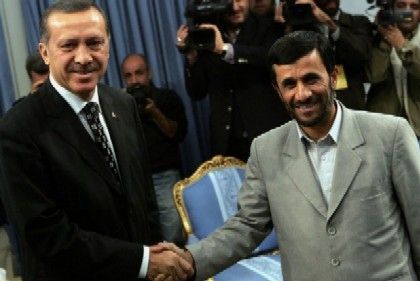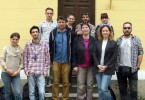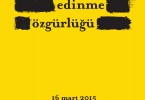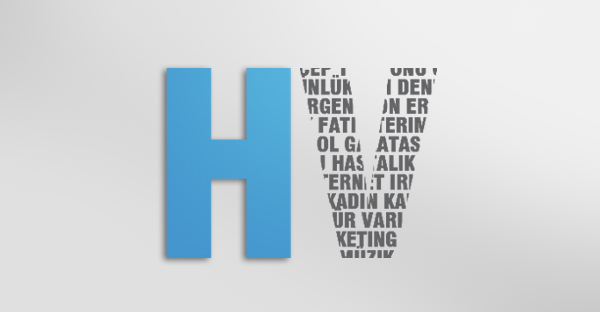News,Etc.
The U.S. Secretary of State Hillary Clinton turned the cold shoulder on a deal brokered by Turkey and Brazil, in which Iran will ship out over a ton of enriched uranium in return for fuel rods for a nuclear research reactor.
“We have reached agreement on a strong draft with the cooperation of both Russia and China. We plan to circulate that draft resolution to the entire Security Council today. And let me say, Mr. Chairman, I think this announcement is as convincing an answer to the efforts undertaken in Tehran over the last few days as any we could provide,” said Clinton at the Senate Foreign Relations Committee a day after Turkish Prime Minister Tayyip Erdogan, Brazilian President Luiz Inacio Lula da Silva reached the uranium swapping agreement with the Iranian President Mahmoud Ahmedinejad in Tehran.
Erdogan, said: “My expectation is that after this declaration there will not be a need for sanctions.”
“For us, the problem with Iran has been solved to a large extent. Now the world community should solve the problem with Israel. Because, right now there are no nuclear weapons in Iran but Israel possesses such weapons,” said Erdogan in Madrid Tuesday where he received a honorary doctorate’s degree from the European University.
However, Clinton expressed her disagreement with his line of thinking. She said the new offer would still leave Iran “in clear violation of its international obligations” because it “is continually amassing newly enriched uranium.” She also criticized what she called the “amorphous timeline for the removal” of the low enriched uranium. Reading the terms, she said, “that could take months of further negotiation and that is just not acceptable to us and to our partners.”
She said the Iranian offer was a clear attempt to undercut the emerging consensus on sanctions. “We don’t believe it was any accident that Iran agreed to this declaration as we are preparing to move forward in New York” with a sanctions resolution intended to “put pressure on Iran which they were trying to somehow dissipate,” she said.
However, despite Clinton’s reference to “cooperation with both Russia and China” Russian President Dmitry Medvedev who visited the Turkish capital before the deal mediated by Turkey and Brazil in Tehran had said the joint initiative by Erdogan and Lula da Silva “was Iran’s last chance.”
But the news of the deal left western capitals scrambling for a coherent and concerted response. It is similar to an agreement they have pushed for during the past six months, yet most observers said it would do little to slow Iran’s nuclear progress.
Concerns were deepened when Iran’s foreign ministry in Tehran said that, despite the deal, Iran would not reverse its decision taken earlier this year to produce 20%-enriched uranium, which brings its scientists significantly closer to making weapons grade fuel.
The French foreign minister, Bernard Kouchner, initially said he welcomed the agreement, but his office later said it “does nothing to settle the problem posed by the Iranian nuclear programme”.
Britain’s new foreign secretary, William Hague, said the deal could be an Iranian delaying tactic. “It’s very important that the detail of this is given and that we hear the IAEA’s [International Atomic Energy Agency] assessment of it. I think the onus is still very firmly on Iran to prove it’s intentions to the rest of the world.”
Yesterday’s deal – which would entail Tehran shipping 1,200kg of low enriched uranium (LEU) to Turkey in return for fuel rods to make medical isotopes – was struck at a time the UN security council is discussing new sanctions against Iran for its refusal to comply with the council’s demands to halt uranium enrichment.
Western diplomats said the uranium exchange deal would temporarily reduce Iran’s stockpile of fissile material, but it would not stop Tehran producing more. They acknowledged, however, that it would make it more difficult now to make the case for sanctions at the UN. “We have to be careful not to dismiss this out of hand,” a European diplomat said. “There are a lot of people who will see it as a breakthrough.
The deal is particularly hard for the west to reject, as it is based on an agreement Iran struck last October in Vienna with Russia, France, the US and the IAEA.
Earlier this year, Tehran withdrew from that agreement, suggesting the exchange be carried out on Iranian soil and in smaller batches.
Tehran has dropped those conditions as part of the new deal. However, since it is producing LEU at about 4kg a day, its stockpile is constantly growing.
The deal states that: “The Islamic Republic of Iran agrees to deposit 1,200kg LEU in Turkey. While in Turkey this LEU will continue to be the property of Iran. Iran and the IAEA may station observers to monitor the safekeeping of the LEU in Turkey.”
Under the terms of the deal, Iran will notify the IAEA of its intention to proceed within seven days. Then the other parties to the Vienna deal – the US, Russia, France and the IAEA – would have to agree, before “further details of the exchange will be elaborated through a written agreement and proper arrangement between Iran and the Vienna Group”, in which the latter would promise to deliver the 120 kg of 20% enriched fuel rods.
“In case the provisions of this declaration are not respected, Turkey, upon the request of Iran, will return swiftly and unconditionally Iran’s LEU to Iran,” the agreement states.







